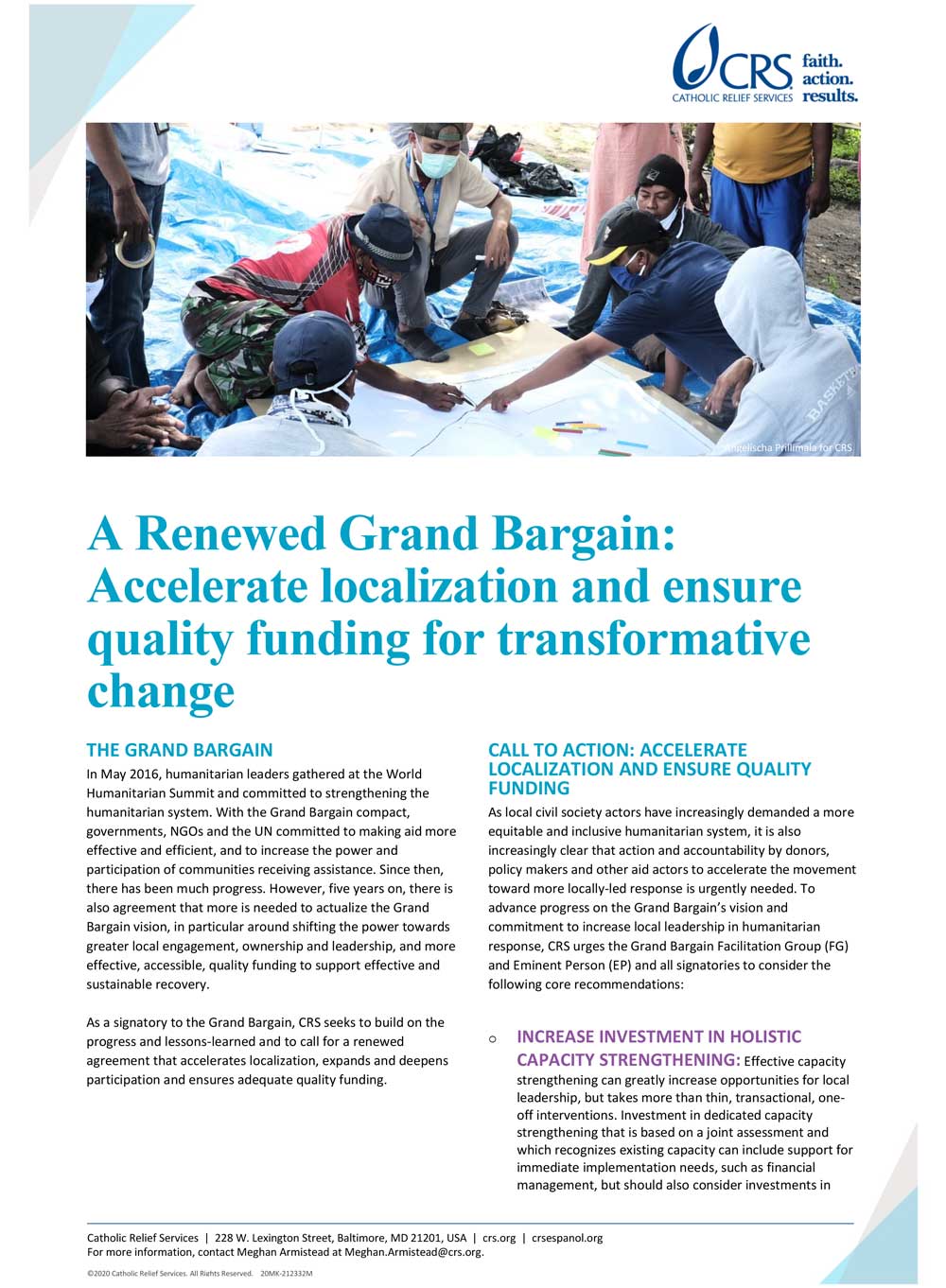
Policy Note | CRS’ Recommendations for the Grand Bargain 2.0
Download a copy of A Renewed Grand Bargain: Accelerate localization and ensure quality funding for transformative change
Executive Summary
In May 2016, humanitarian leaders gathered at the World Humanitarian Summit and committed to strengthening the humanitarian system. With the Grand Bargain compact, governments, NGOs and the UN committed to making aid more effective and efficient, and to increase the power and participation of communities receiving assistance. Since then, there has been much progress. However, five years on, there is also agreement that more is needed to actualize the Grand Bargain vision, in particular around shifting the power towards greater local engagement, ownership and leadership, and more effective, accessible, quality funding to support effective and sustainable recovery.
As a signatory to the Grand Bargain, CRS seeks to build on the progress and lessons-learned and to call for a renewed agreement that accelerates localization, expands and deepens participation and ensures adequate quality funding. As a signatory to the Grand Bargain, CRS seeks to build on the progress and lessons-learned and to call for a renewed agreement that accelerates localization, expands and deepens participation and ensures adequate quality funding.
As local civil society actors have increasingly demanded a more equitable and inclusive humanitarian system, it is also increasingly clear that action and accountability by donors, policy makers and other aid actors to accelerate the movement toward more locally-led response is urgently needed. To advance progress on the Grand Bargain’s vision and commitment to increase local leadership in humanitarian response, CRS urges the Grand Bargain Facilitation Group (FG) and Eminent Person (EP) and all signatories to consider the following core recommendations:
- Increase investment in holistic capacity strengthening;
- Increase multi-year, flexible funding;
- Hold stakeholders accountable through regular reporting on meaningful indicators;
- Energize and invest in country-level action and funding;
- Support equitable risk sharing; and
- Support incentives for quality partnership with INGOs.

